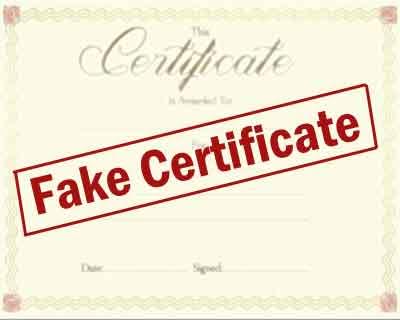TOP 8 LIES FOUND ON A FAKE RESUME
The vicious circle of the false CV
“More unemployment, so more competition. Having a better diploma than the neighbor becomes vital “
In this challenging economic environment, job seekers are working hard to find the right job. For this, they do not hesitate to make a false CV embellishing their past, both on diplomas and professional experiences. A 2007 study by a human resources institute shows us that three-quarters of CVs would be misleading and nine out of ten candidates would find it normal to embellish their schooling.

1-mention degrees never obtained and exaggerate professional experience
The student warns us against the boom of fake degrees. Some jobs require obtaining a particular degree and/or a degree of experience to be practiced, many candidates do not hesitate to lie about these points. It has recently been possible to buy fake diploma originals on the internet.
To protect yourself: consult the alumni directory, ask the school for information, contact the ex-managers. Do not hesitate to call on companies specializing in CV verification.
To protect yourself: consult the alumni directory, ask the school for information, contact the ex-managers. Do not hesitate to call on companies specializing in CV verification.
“3 out of 4 CVs would be misleading”
2-Overestimating one’s skills
Bilingual, trilingual, some do not hesitate to overestimate their language levels or boast their perfect mastery of a computer tool. These are the easiest things to check: a few sentences in English during the interview or a technical question about using a tool are usually enough to make the masks drop.
3-Lying on the conditions acquired at his former employer:
In order to obtain the best possible conditions, some candidates lie about their former professional situations: salary, bonuses, restaurant vouchers, extra days of leave, etc. A call to the company may be sufficient to verify these claims.
4-Invent false references
Many candidates do not hesitate to overestimate experiences in companies they have never attended. They hope to soften the recruiters and value their applications. The recruiter will quickly notice the falsity of the information if the candidates’ comments are inconsistent during the hiring interviews and at the time of the reference check.
“His [false] course at the Bank of Swiss and his diplomas from the University of Aille, had earned him a position as a psychiatrist at the Chirac Foundation Ussel reports the newspaper Of Express.“
5-Create hobbies and interests
Unscrupulous candidates sometimes use the “interests” section of the fake resume to build common points with the recruiter. Thanks to social networks, it is now possible for a candidate to investigate the passions of a potential boss. A discussion with the candidate about his passions will enlighten you on his credibility.
6- Lie on his address
Many candidates claim to reside at addresses more “prestigious” than reality to give themselves a better image. The lie may also be intended to reassure the employer as to the distance between home and work to reassure the employer that the employee will not have difficulty being punctual.
7- Make up your age, identity and marital status
In order to avoid discrimination, some people are tempted not to communicate their age, their real identity or even their marital status for fear that it will harm them. It is easy to control this information, thanks to the identity card, the dates of graduation or simply at the time of the meeting with the candidate.
8- Hide his irregular situation
Beyond the false CV, some candidates completely revisit their personal situation. Others go so far as to obtain false documents (false work permit and false residence card). Adopt vigilance, the law is uncompromising for the employer who hires a foreigner without the title authorizing him to work in France, you risk criminal sanctions.
An existing law since 1992 allows the employer to check the CV of his candidate
“In 2015, he was fired for misconduct for lying on his CV (the world) ”
The employer has the right to verify the information provided by the candidate. If he does not, it is at his own risk. Although far from being systematic among employers, verification is quite possible since the enactment of a law on 31 December 1992 and the current case law.

